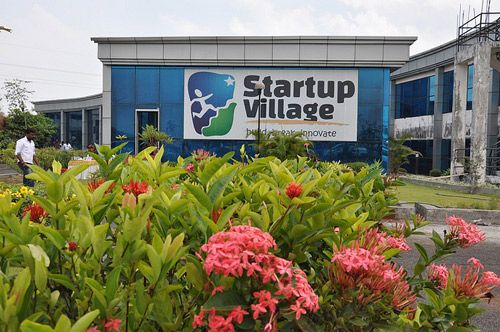
Seven months down the line, not much progress has been made, except that the scheme is still being fine-tuned, report Ishan Bakshi and Nitin Sethi.
Launched in January this year with a planned corpus of Rs 10,000 crore (Rs 100 billion), the government's ambitious Startup India scheme was expected to help generate 1.8 million jobs and reduce red tape.
Seven months down the line, not much progress has been made, except that the details of the scheme are still being fine-tuned while the start-up fund itself has received a meagre Rs 500 crore (Rs 5 billion) from the government so far.
It now transpires that the Rs 10,000 crore (Rs 100 billion) will be released for the start-up fund over a period of 10 years, by 2025, 'subject to progress of the scheme and availability of funds.'
This year, it expects to infuse another Rs 600 crore (Rs 6 billion) to the fund, which is being managed by the Small Industries Development Bank of India.
This fund will not invest directly in start-ups. Instead, it will invest in existing venture capital funds (alternate investment funds registered with the Securities and Exchange Board of India), which in turn will invest in start-ups.
These start-ups need not be the ones the government registers with the department of industrial policy and promotion under the Startup India scheme.
The scheme, as announced in January and detailed in June, has several components.
According to a government release, the plan includes 'providing funding support through a Fund of Funds with a corpus of Rs 10,000 crore, a credit guarantee fund for start-ups, tax exemption on capital gains invested in Fund of Funds, and tax exemption to start-ups for three years'.
These were some of the fiscal benefits.
There are other benefits such as ensuring easier entry and exit, ease of registering intellectual property rights and simplifying norms for selling goods or services to the government.
According to the government plan, start-ups are to register with the DIPP. Only those that have been created in the past five years, have a turnover of less than Rs 25 crore (Rs 250 million), and are certified by an incubator, are eligible to be registered.
For those registered with the DIPP, restrictions regarding turnover and years of experience for applying for government tenders are waived off along with ease of filing intellectual property rights.
There is also an additional wall to climb to avail tax benefits.
For availing tax benefits, start-ups have to get an approval from a three-member inter-ministerial board.
This board comprises the joint secretary in the DIPP who is in charge of start-ups, a senior officer in the Department of Science and Technology, and a director in the Department of Biotechnology.
A start-up becomes eligible for tax benefits only if the three-member board is convinced that the business 'involves innovation, development, deployment or commercialisation of new products, processes or services driven by technology or intellectual property.'
Additionally, the start-up must necessarily be formed after April 1, 2016.
"There was some initial confusion that tax benefits would be available starting from 2016-17 to any start-up incorporated earlier. But the finance ministry clarified that the benefit will only be available to start-ups set up after April 1, 2016," explained H K Mittal, member of the inter-ministerial board, and a member of the investment committee for the start-up fund under Sidbi.
The income tax waiver for three consecutive years can be availed only if the entity's turnover is below Rs 25 crore (Rs 250 million) in any year up to 2020-21.
This tax exemption would be available only to start-ups registered between April 1, 2016 and March 31, 2019.
DIPP did not reply to a detailed questionnaire sent on the issues raised in the story.
Officials, however, met Business Standard informally to explain the scheme.
So far, the DIPP has received 728 applications. It has registered and recognised 180 start-ups.
Of these, the inter-ministerial board has appraised 33 start-ups for tax benefits.
Only one has been approved so far. Another has been approved only for IPR benefits. Ten have been rejected, while the decision on others has been deferred.
Only those entities that have been incorporated after April 1 this year can avail of tax benefits.
So, the number of eligible applications is likely to increase in the future.
"Initially, we got too many applications from entities incorporated in previous years," said a source.
The support for IPR benefits includes a rebate of up to 80 per cent on IPR filing and not having to pay agents who facilitate the process of registering patents and trademarks.
The cost for these agents would be borne by the government up to Rs 25,000 in a successful case.
But even approval from the inter-ministerial board does not guarantee government funding. The fund, managed by Sidbi, is to invest in VC funds.
However, these VC funds are free to invest in any start-up they find appropriate.
They need not invest specifically in the DIPP-registered start-ups.
"It is best that the market takes the decision and not the government," says Kshatrapati Shivaji, chairman and managing director, Sidbi.
"So far, the investment committee of the start-up fund has screened 20 proposals for investment. Collectively, these proposals would require a funding of Rs 867 crore (Rs 8.67 billion). At the moment, these proposals are undergoing due diligence at Sidbi.
In total, these venture capital funds are expected to mobilise Rs 5,690 crore (Rs 56.9 billion)," says Shivaji.
"The government's exposure to the fund is usually 15 to 20 per cent of the total corpus of the venture capital funds," he adds.
But this money is yet to be disbursed by Sidbi.
VCs will first lock in the entire investment for their corpus and then hunt for start-ups to invest in.
The cycle should take four-and-a-half years.
ACTION PLAN FOR START-UPS
- Providing a simple compliance regime for start-ups based on self-certification
- Creating 'Startup India Hubs' for handholding of start-ups
- Providing legal support and fast-tracking patent examination at reduced costs
- Relaxed norms of public procurement for start-ups and faster exit for start-ups
- Harnessing private sector expertise for setting up incubators n Setting up of seven new research parks modelled on the Research Park at IIT-Madras
- Setting up a credit guarantee fund for start-ups, with a corpus of Rs 500 crore (Rs 5 billion) per year for the next four years
Image published only for representational purposes.











